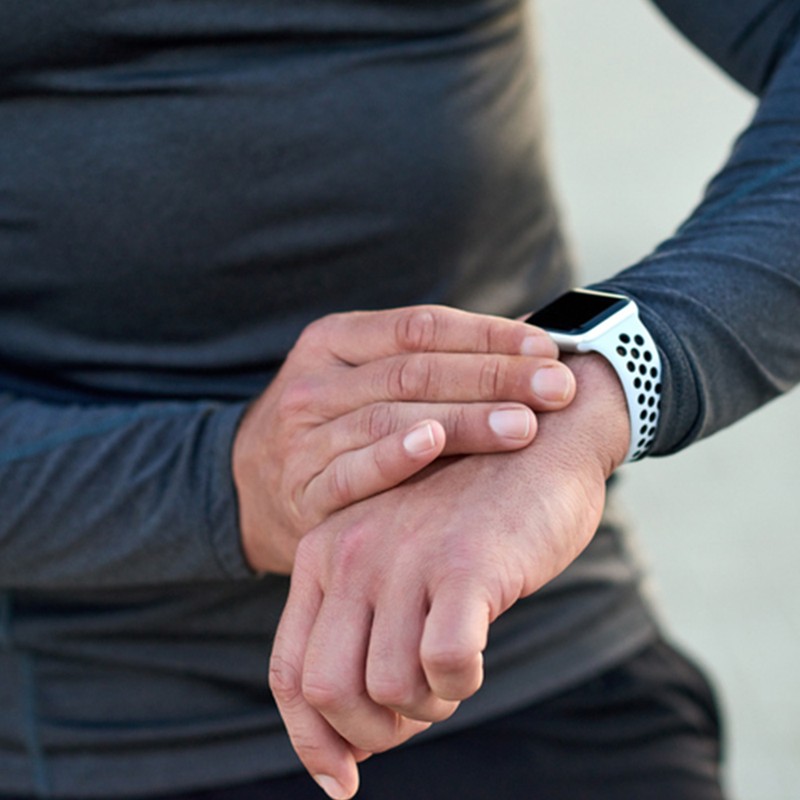How To Burn Calories Outside The Gym
It’s Linked To Your Metabolism
As Jonathan Dick, Tier X training manager at fitness chain Equinox, explains, “NEAT accounts for up to 30% of your total daily energy expenditure. The majority of that expenditure is made up from your basal metabolic rate (BMR), which is how many calories you burn at rest. Around 20-30% comes from gym-related activity, and the thermogenesis effect of food accounts for 10%. While there is always a place for gym-based work, NEAT accounts for a significant part of your metabolism and can have a huge impact on your daily energy expenditure – i.e. how many calories you burn.” In short, NEAT accounts for a large part of most people’s daily activity, and it’s the easiest type of activity to increase.
Being Active Burns Fat
Lipoprotein lipase (LPL) is a key enzyme when it comes to converting fat into energy. LPL levels drop when you are sedentary but, by moving regularly throughout the day, you can keep your LPL levels stable and in turn support your body to burn fat. But you don’t need to hit the gym to boost production of LPL, says Jonathan: “Standing can burn around 70-80 calories more than if you were sat all day. It may not be much, but there are far more benefits to standing for an hour than being sat at your desk.” Many fitness experts say focusing solely on the energy you use while exercising is one of the biggest fat-loss mistakes you can make.
Daily Steps Add Up
Hitting your 10,000 steps has long been lauded as an achievable goal for daily physical activity. When it comes to NEAT, pounding the pavement can make a huge difference, Jonathan explains: “10,000 steps roughly equates to five miles. The average man weighing 80kg will burn around 100 calories per mile, meaning hitting your daily step goal could burn an additional 500 calories, without even stepping foot in the gym.”
A Standing Desk Could Be Worth It
As Jonathan stresses, inactivity can impact fat loss. “An 80kg man burns around 1,100 calories just sat at their desk for eight hours. However, if an 80kg man were to stand for the same time, he would burn 1,400 calories,” he says. “If a standing desk is impractical for your office, simply moving around more during the day can have a huge impact too. Set an hourly alarm during the working day and make that your cue to walk around for 10 minutes,” he suggests.
NEAT Is A Fuss-Free Way To Control Weight
Losing weight tends to be overcomplicated with discussions about metabolism, food and fitness, but it really all comes down to energy balance: to lose weight, you must expend more energy than you take in. “The difference in energy expenditure between someone who is active all day and someone who is sedentary can run into hundreds and hundreds of calories,” says Jonathan. “One of the many benefits of NEAT is that you will be less reliant on calorie restriction to lose weight.”
It Can Support An Active Lifestyle
Keen gym goer? NEAT can support your health in other ways than pure calorie burn, especially if you hit your daily step goal. Walking can increase blood flow to sore muscles, easing discomfort and the dreaded DOMS (delayed onset muscle soreness).
Not All NEAT Is Created Equal
Occupational NEAT is the activity thermogenesis resulting from work. Those with active professions such as nurses, doctors, construction workers and personal trainers are constantly on their feet and boast levels of NEAT to make everyone else green with envy. For those who spend weekdays chained to a desk, levels of NEAT are generally pretty poor.
Everything Counts
If you’re not a keen walker, or haven’t got the time to hit your step goal, remember any activity will maximise the power of your NEAT. If you’re in an office, make an effort to take the stairs; have standing meetings; and instead of emailing a colleague, get up and chat to them in person. If you’re at home, everyday chores such as tidying, sweeping, vacuuming and reorganising cupboards are great ways to move your body and up your activity.
DISCLAIMER: We endeavour to always credit the correct original source of every image we use. If you think a credit may be incorrect, please contact us at [email protected].


